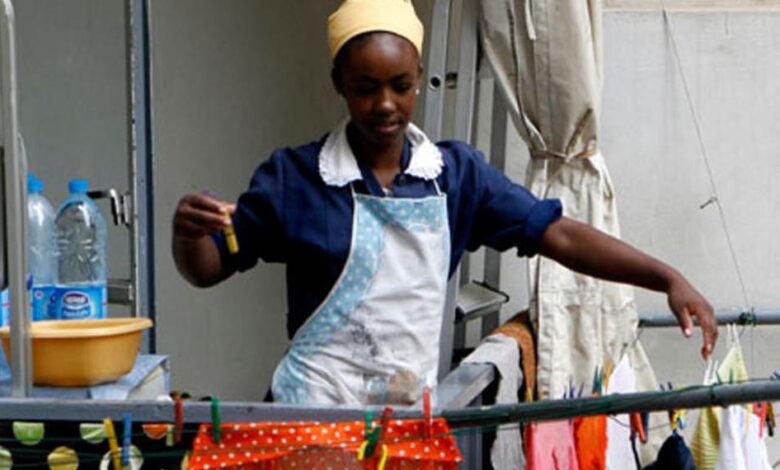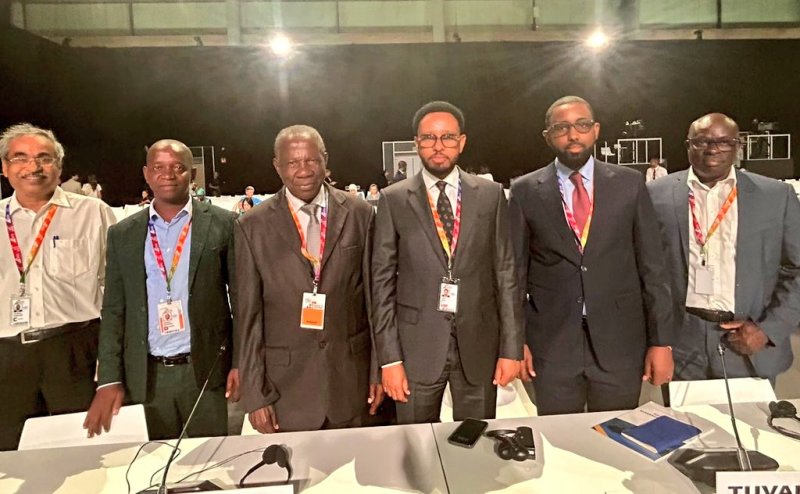The struggle of underpaid house maids in Uganda
Uganda has not had an official minimum wage since 1984, a gap that has left housemaids at the mercy of their employers, who often dictate wages without any form of regulation.

Housemaids in Uganda are often the unsung heroes of many households. From cleaning and cooking to caring for children, they carry out essential tasks that allow families to function smoothly.
Yet, despite their indispensable roles, they are among the lowest-paid workers in the country, a reality that has pushed labor experts to call for urgent reforms.
Labor rights activist and economist, Dr. Sarah Mwesige, believes that the wage disparities in Uganda’s domestic sector reflect a larger, systemic issue.
“Housemaids form the backbone of many middle- and upper-class homes, but their wages are appallingly low,” she said.
“Without a national minimum wage, domestic workers are left vulnerable to exploitation, working long hours for pay that is not enough to meet their basic needs.”
Uganda has not had an official minimum wage since 1984, a gap that has left housemaids at the mercy of their employers, who often dictate wages without any form of regulation.
Dr. Mwesige points out that maids earn as little as UGX 50,000 ($13) per month, despite the rising cost of living.
She added, “This is modern-day slavery in some ways. Domestic workers deserve the same legal protection as any other employee in Uganda.”
Anna Hilda, a 24-year-old mother of two, left her village in northern Uganda to work as a maid in Kampala, hoping to earn enough to provide for her children.
She works for a family of six, managing all the household chores and caring for the children.
Despite her dedication and long hours, Anna earns only UGX 80,000 a month, most of which she sends home to her family.
“I wake up at 5 a.m. and work until 10 p.m. every day. The work is hard, but the pay is small. I can barely afford to save anything,” Anna explains.
Her employers, while kind, have never considered increasing her salary, citing their own financial limitations.
Fatuma Kabuye, 30, has worked as a maid in Kampala for over a decade. Despite her years of experience, she earns just UGX 100,000 per month.
“I have worked for four different families in the last 10 years, and each one promised to raise my salary but never did,” Kabuye says.
Worse, she has no access to health benefits or paid leave. When she felt ill last year, she had to rely on friends and borrow money to cover her medical bills.
“We are invisible workers. People think because we live in their homes, we don’t need much. But we are human beings with needs and families to take care of,” she adds.
Sharon Nabasirye, a 19-year-old maid from Masaka, works for a prominent family in the city. Unlike Anna and Fatuma, Sharon’s salary is slightly higher at UGX 150,000, but the work pressure is intense.
“I am responsible for everything—cooking, cleaning, washing clothes, taking care of the children. Sometimes, I don’t get enough rest. It feels like I am on call 24 hours a day,” Nabasirye says.
Nabasirye dreams of going back to school to finish her education, but with her current salary, that dream seems far-fetched.
“I can’t save enough to support my education or start a business. I want a better future, but it feels out of reach,” she admits.
Like many domestic workers, Nabasirye hopes the government will step in and set a minimum wage that can allow her to earn a livable income and give her the chance to improve her life.
The stories of Anna, Kabuye, and Nabasirye are not isolated cases. Across Uganda, thousands of housemaids share similar struggles.
Labor unions, human rights organizations, and experts like Dr. Mwesige are calling on the government to introduce a national minimum wage, especially for vulnerable sectors like domestic work.
“The lack of a minimum wage means there is no floor to how low wages can go,” says Dr. Mwesige.
“We need to enact laws that protect workers and provide them with a safety net, so they can work with dignity.”
As the conversation around a national minimum wage gains momentum, domestic workers like Anna, Fatuma, and Sharon are waiting for their voices to be heard.
A fair wage could transform their lives, giving them the financial freedom to support their families, access healthcare, and perhaps one day, realize their dreams.






